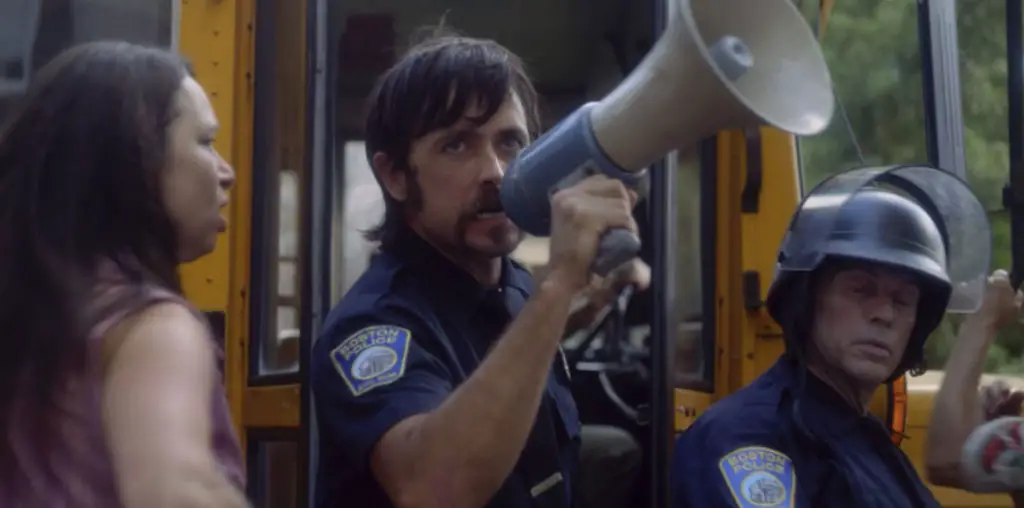
I don’t remember it myself, but I understand there was once a time in this country when radio airwaves didn’t consist solely of “Jack FM,” 20-song playlists, and other elements of what the late, great Freddie Mercury called “radio ga-ga.” Furthermore, stations were still sources of important local information, and disc jockeys discussed area politics and issues weightier than who got kicked out of the house on last night’s episode of “Big Brother.”
One of those most respected (if not the most famous) of these was Ralph Waldo “Petey” Greene, Jr. (Don Cheadle). A Washington D.C. native incarcerated in the early 1960s for armed robbery, Greene started spinning records in the Lorton Prison work program and discovered he had an aptitude for it. “Talk to Me” catches up with Greene near the end of his stay in prison. He engineers an early release after talking a fellow inmate out of committing suicide (Greene neglects to tell the warden he was the one who convinced the guy to pull the stunt in the first place) and – after a chance meeting with WOL program director Dewey Hughes (Chiwetel Ejiofor) – talks his way into a spot as the station’s morning DJ. Hughes sees the growth of the city’s black population and convinces station manager E.G. Sonderling (Martin Sheen) to give the hard-drinking, blunt-talking Greene a chance.
Greene soon becomes a wildly popular local figure, agitating for community action as well as sponsoring programs for ex-cons and speaking with youth groups to prevent kids from turning to crime.. When Martin Luther King, Jr. was assassinated in 1968, Green and Hughes went on the air and were widely credited with preventing greater violence and bloodshed.
“Talk to Me” focuses primarily on the early years of Greene’s career, his sometimes turbulent partnership with Hughes, and his relationship with girlfriend Vernell Watson (Taraji P. Henson). Unsurprisingly, the film is strongest in its first half, when we’re initially exposed to the full force of Greene’s personality. I admit, I always considered Cheadle a good-not-great actor, but I have seen the light. He brings warmth, humor, and vulnerability to a role that could easily have been a “Good Morning, Vietnam”-level blunder. Both Ejiofor – who, as expected is note-perfect as Hughes – and Henson turn in fine performances, and a good deal of our enjoyment of the film comes from watching Cheadle’s give-and-take with Ejiofor as well as his tumultuous relationship with Henson.
Sadly, director Kasi Lemmons stumbles over the expected biopic clichés: There’s the inevitable rising/falling star story arc, as Greene finds himself unwilling/unable to take his act to the next level. This results in an inauspicious exit from his first and only appearance on “The Tonight Show” and a falling-out with Hughes. This opens the door for another of my favorite movie bromides – the Landmark Shot – as Hughes solemnly contemplates his future in front of the Brooklyn Bridge.
Lemmons really pays almost no attention to Greene’s decline, playing much of it for laughs, until his inevitable reconciliation with Hughes (complete with the ominous cough signifying that Greene’s time is almost up). This has the unfortunate side effect of mythologizing Greene instead of giving us a more honest look at the man’s very human flaws.
We’re still afforded an interesting portrait of one of America’s last memorable radio personalities. Living in an era when our drive-time radio choices are overwhelmingly dominated by some variation of the “morning zoo” should make us miss the days of DJs like Petey Greene all the more. And if we weren’t around the first time, “Talk to Me” is a poignant reminder of why people used to actually listen to their radios.
